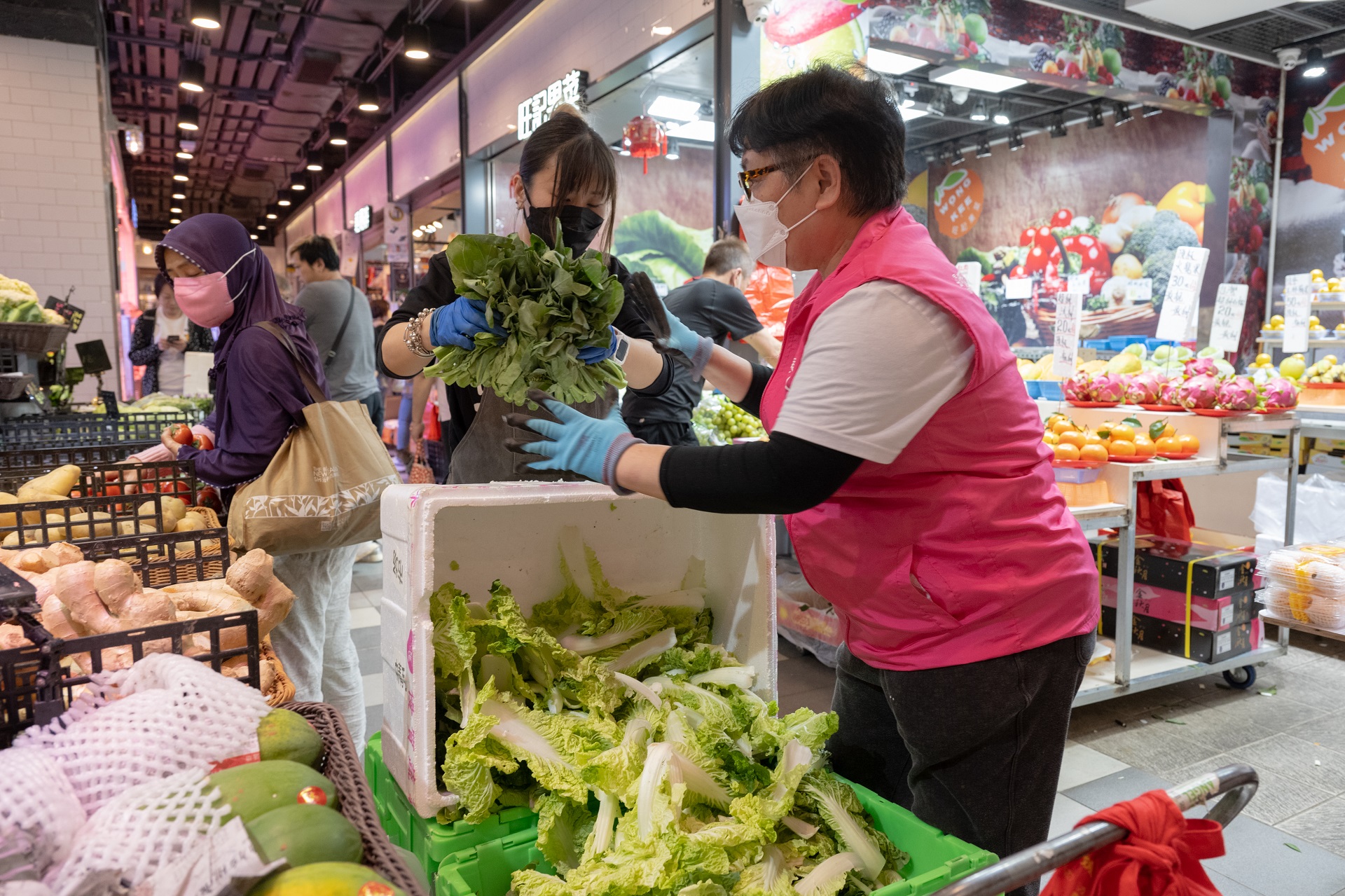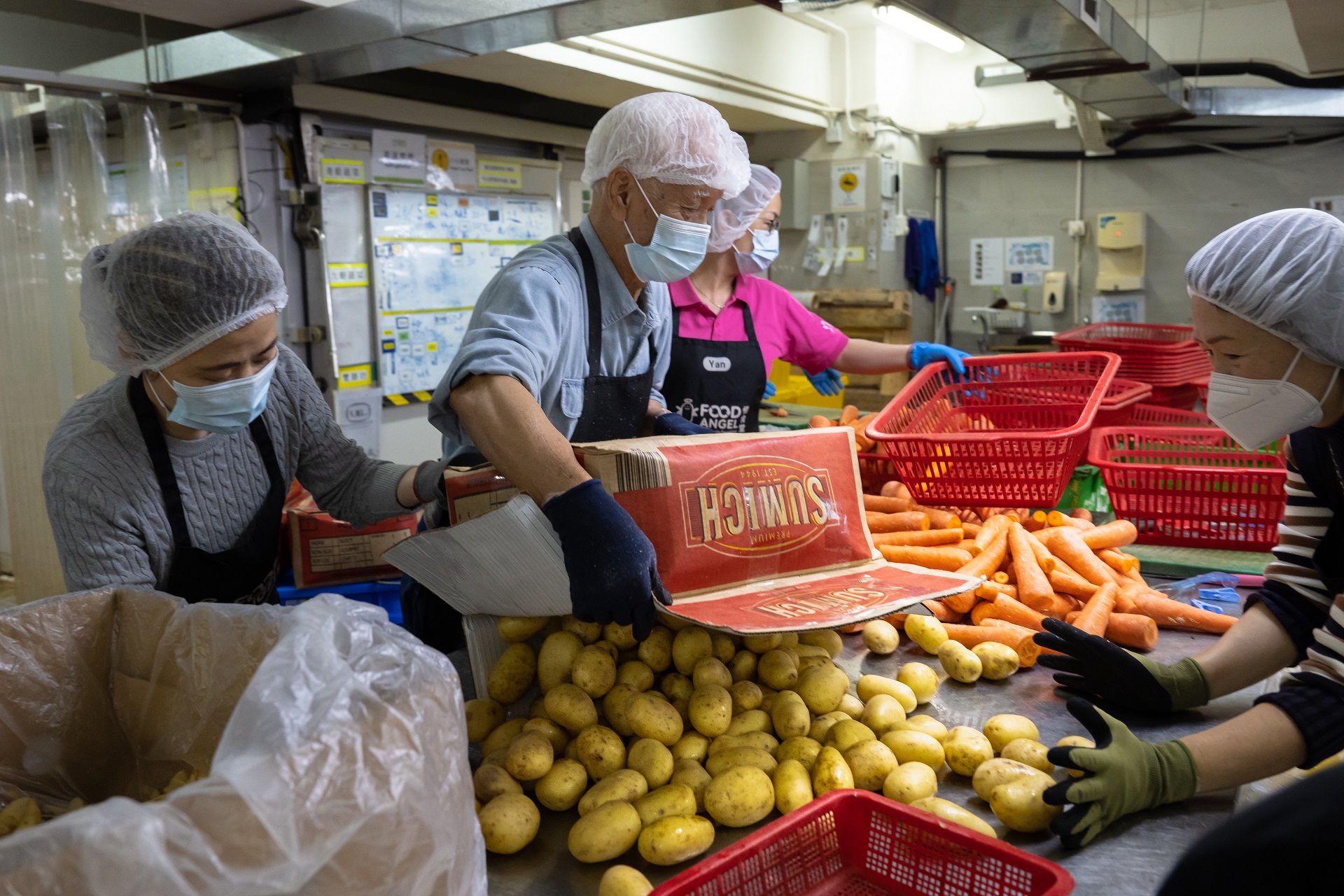It’s lunch time and the click-clack of chopsticks is the only noise in this sunlit recreation center in Kowloon, Hong Kong. About 30 grey-haired restaurants sit at little tables, dipping into steaming bowls of rice, pork stubborn belly, leafy greens and lotus root soup.
Au Shu Kei, 88, using a flannel t-shirt, denim coat and surgical mask, strolled here from his home 10 minutes away. A retired hotel shuttle chauffeur, he comes 5 days a week for lunch.
Does he have a preferred meal? “I am not a fussy eater,” he states, “as long as it’s healthy food.” He includes: “The service here is great.”
How this meal occurred is part logistical balancings, part day-to-day wonder– with some assistance from innovation.
Managed by an NGO appropriately called Food Angel, it includes an army of food collectors fanning out to markets, dining establishments, hotels and groceries throughout Hong Kong to get surplus food that would otherwise be gotten rid of since it is a bit wilted or bruised or just leftover. They gather 45 metric lots weekly; majority from ParknShop, a grocery chain owned by noted corporation CK Hutchison Group. Other donors consist of airline company Cathay Pacific and high-end hotel The Peninsula Hong Kong.

Racing versus time– and expiration dates– Food Angel turns this saved bounty into 20,000 hot and cooled meals day-to-day and assists provide 11,000 other meals and food loads through a network of charities and vending makers, along with house shipment to a few of Hong Kong’s poorest communities.
“ Generally, w e rescue food which is still edible, following stringent food security procedure, and turn them into meals for the clingy neighborhood complimentary of charge,” stated Zoe Lee, Food Angel’s Chief Technique Officer. Just Recently, the NGO’s work has actually been driven by innovation consisting of Microsoft’s Characteristics 365 Field Service and Company Central software application and Power Apps, hosted on Azure.
Hong Kong is a monetary center and cooking capital. It’s likewise a location where a substantial underclass– lots of senior– battle simply to put food on the table. Hong Kong tops the world in durability, exceeding even Japan.
The senior population reached 1.3 million in 2020, representing one-fifth of the overall population, according to the Hong Kong Hardship Scenario Report released by the federal government. Forty 5 percent of the senior– or 583,600– were determined as bad prior to any federal government help.
As one of the world’s most largely inhabited cities, Hong Kong likewise has a huge waste issue: its 3 running garbage dumps are close to complete. Hong Kong’s Environmental management Department approximates that 30% of the 10,809 metric lots of community waste discarded into garbage dumps every day originates from food. For the last couple of years, the federal government has actually been actively promoting food contribution, recycling and composting.
All these aspects make the case for food rescue here especially engaging.
Food Angel was released in 2011 by Bo Charity Structure, an NGO established by Gigi Tung, a previous kids’s health club business owner. Years back, Tung saw a typical street scene that for her included sharp relief Hong Kong’s wealth space.
” In a location with high-end shops, I saw a granny battle to press a cart stacked with cardboard up a slope,” she informed a recruiter on Hong Kong Cable in 2012. “This revealed the inequality of society. I considered methods I might assist her. The most direct one was to supply her with meals.”
Tung created the motto “Waste Not, Appetite Not, With Love.” When the pandemic hit, waste and cravings both soared, and more individuals required Food Angel’s variation of love.
Today, the company produces double the variety of hot and cooled meals– 20,000 a day– as prior to the pandemic.

As Food Angel grew, so did the intricacy of its work. Up up until 2 years back, it counted on a mishmash of mobile messaging, pen on paper and numerous spreadsheets to run.
It was unpleasant. There was no chance to understand what or just how much had actually been gathered up until chauffeurs showed up back at the storage facility after their rounds. Food collectors and chauffeurs in some cases missed out on each other by minutes at collection points, without any one the smarter up until hours later on.
2 years back, as need for services leapt, Food Angel started dealing with a tech specialist to determine a much better method. “Food Angel’s operation is rather special,” stated Kenny Zee, the NGO’s head of IT. “We might not discover any ready-made system that satisfied our service requirements.”
The group wound up tailoring a service utilizing Microsoft innovation. Characteristics 365 Field Service is utilized to handle logistics and is incorporated into an app the group constructed utilizing Power Apps, a Microsoft tool that permits individuals without substantial coding understanding to develop their own apps. Chauffeurs now are designated paths through a mobile app, that includes details such as what size automobile can squeeze into a collection area and whether there’s a ramp offered. Chauffeurs tap in what they have actually gotten and just how much at each collection point.